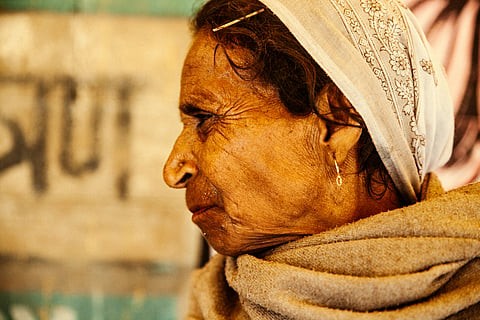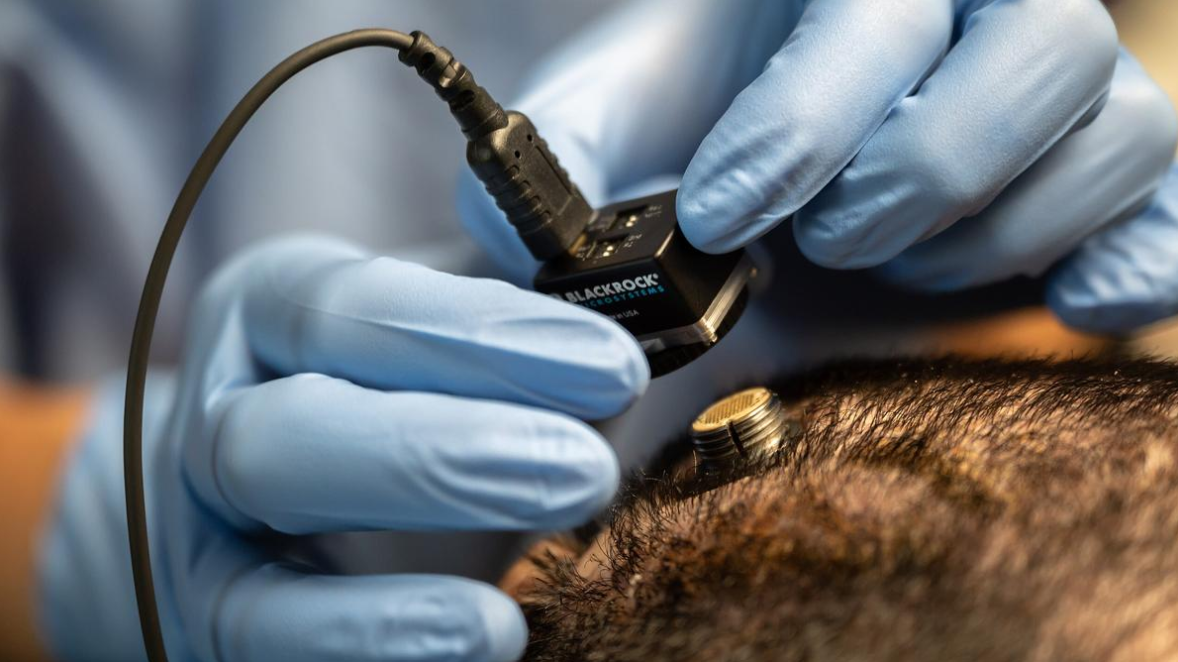Description

Copyright infringement not intended
Context: The government has recently issued a new set of operational guidelines for the prevention and control of non-communicable diseases (NCDs) in India. However, these guidelines have been criticized by some experts for neglecting the aspect of palliative care for people with chronic and life-limiting illnesses other than cancer.
Details
- India is one of the most populous countries in the world, with almost a fifth of the global population living within its borders. Most of these people live in rural areas, where access to health care and other services may be limited.
- India also faces a growing challenge of non-communicable diseases, such as cancer, diabetes, hypertension, and respiratory diseases, that are linked to lifestyle factors and environmental conditions. These diseases often require palliative care at some point in their course, which is a type of care that focuses on relieving pain and suffering and improving the quality of life for patients and their families.
What is Palliative care?
- Palliative care is an essential component of health care that aims to improve the quality of life of patients and their families by providing relief from pain and suffering, as well as emotional and spiritual support. It does not aim to cure the disease, but to relieve the symptoms and distress caused by it.
- Palliative care also supports the patients' families and caregivers, who may face emotional, financial, and practical challenges. It can be given at any stage of the illness, along with other treatments that may still be effective.
- According to the World Health Organization (WHO), palliative care should be integrated into the health system at all levels of care and should be accessible to all people with serious health-related suffering, regardless of their diagnosis, prognosis, age, or socio-economic status.
- The new guidelines on the NDC from the Indian Government only mention palliative care in the context of cancer management and do not address the needs of people with other NCDs such as cardiovascular diseases, diabetes, chronic respiratory diseases, and neurological disorders. This is a major gap in the policy framework, as NCDs account for more than 60% of deaths in India, and many of these conditions require long-term care and symptom management.
How many need palliative care?
- The demand for palliative care in India is high, but the supply is low. Palliative care is a type of medical care that focuses on relieving pain and suffering for patients with serious illnesses.
- However, in India, palliative care is mostly available in urban areas, where only a small fraction of the population lives. According to a medical oncologist from Kerala, Aju Mathew, 70% of his patients need palliative care, but they are not able to access it.
- India has made significant progress in improving its health system since independence. It has established a three-tier health system, launched various national health programmes and schemes, and introduced the Ayushman Bharat Health Insurance Scheme to provide affordable health care to all.
- However, these initiatives are not enough to prevent millions of people from falling into poverty due to health-related expenses. One of the reasons for this is over-medicalisation, which refers to the excessive use of medical interventions that may not be necessary or appropriate for the patient's condition.
Is there a palliative care programme?
- The National Programme for Prevention & Control of Non-Communicable Diseases (NP-NCD) is a national programme that covers some of the most common and costly noncommunicable diseases in India, such as cancer, diabetes, cardiovascular diseases and stroke. These diseases often require long-term and complex care and can cause significant distress and disability for patients and their caregivers.
- However, the NP-NCD does not adequately address the palliative care needs of these patients. The programme focuses mainly on the prevention and early detection of these diseases and provides limited support for curative and rehabilitative services.
- Palliative care is not integrated into the programme's objectives, strategies, activities or indicators. There is also a lack of trained and qualified palliative care professionals, infrastructure, drugs and equipment at various levels of health care delivery.
Therefore, there is an urgent need to strengthen the palliative care component of the NP-NCD. This would entail revising the programme's guidelines to include;
- Palliative care as the core element of comprehensive care for non-communicable diseases.
- Developing a national policy and framework for palliative care.
- Enhancing the capacity and skills of health workers in palliative care.
- Ensuring the availability and accessibility of essential palliative care drugs and equipment.
- Establishing referral linkages and coordination mechanisms between different levels of health care.
- Creating awareness and advocacy among stakeholders and the public about the importance and benefits of palliative care.

What are the gaps in the recent NDC guidelines?
- Per the Global Atlas of Palliative Care, in 2020, the need for palliative care was higher for non-cancer illnesses. However, the revised NP-NCD operational guidelines, released in May 2023, mention palliative care in synonymy with cancer only. This is a step back from the previous operational guideline (2013-2017), in which chronic and debilitating conditions also fell under the ambit of palliative care.
- Most patients who need palliative care are suffering from debilitating diseases, and home-based care forms the ideal mode of healthcare delivery. Previously, the programme guidelines mentioned support being provided to facilitate home-based palliative care services. However, palliative care service delivery starts only from the district hospital in the revised guidelines, with no mention of home-based care.
- The new guidelines mention the linking of 11 programmes to promote the convergence of services focusing on the care of non-communicable diseases. One of these is the National Programme for Palliative Care (NPPC).
- NPPC was announced in 2012; however, the lack of a dedicated budget has prevented the implementation of the programme since its inception. Experiences from the field suggest that many medical officers at primary health centres are not aware of the existence of such a programme.
Significance of palliative care
- It respects patient autonomy and preferences and requires end-of-life conversations to ascertain the wishes of the person who is dying and those of the family.
- It provides holistic care that addresses the physical, psychological, social and spiritual aspects of suffering.
- It involves a multidisciplinary team of professionals, including doctors, nurses, social workers, counsellors, volunteers and others.
- It can be delivered in various settings, such as hospitals, hospices, home-based care, community-based care and mobile units.
- It reduces the burden of suffering and improves the quality of life for millions of people who are living with incurable or chronic diseases.
- It enhances the dignity and comfort of the dying and supports the bereaved families.
- It reduces the unnecessary use of costly and futile interventions that may prolong suffering or cause harm.
- It contributes to the development of a compassionate and humane society that values life and death.
Challenges that hinder the development and delivery of palliative care
- Lack of awareness and education among health professionals, policymakers and the public about the concept and benefits of palliative care.
- Lack of national and state-level policies and programmes to support palliative care integration across all levels of care.
- Lack of availability and accessibility of essential medicines for pain relief and symptom management, especially opioids, due to restrictive regulations and inadequate supply chains.
- Lack of trained and qualified palliative care providers and specialists, as well as a lack of standardized curricula and accreditation for palliative care education.
- Lack of infrastructure and resources for palliative care services, especially in rural and remote areas.
- Lack of research and evidence on palliative care needs, outcomes and best practices in the Indian context.
- Lack of social and cultural acceptance of palliative care and end-of-life issues, as well as a lack of legal and ethical frameworks to protect the rights and preferences of patients and families.
Palliative care development requires a multi-pronged strategy that involves:
- Advocacy and awareness campaigns to increase the demand and recognition for palliative care among health professionals, policymakers and the public.
- Policy reforms and implementation to create an enabling environment for palliative care integration across all levels of care, including primary health care, secondary health care, tertiary health care and community-based care.
- Education and training to increase the capacity and competence of palliative care providers and specialists, as well as to incorporate palliative care into undergraduate and postgraduate curricula for health professionals.
- Service development and expansion to increase the availability and accessibility of palliative care services across different settings, especially in rural and remote areas.
- Research and evaluation to generate evidence on palliative care needs, outcomes and best practices in the Indian context, as well as to monitor the progress and impact of palliative care development.
- Collaboration and partnership to foster a coordinated and comprehensive approach to palliative care delivery among various stakeholders, such as government agencies, non-governmental organizations, academic institutions, professional associations, civil society groups, media outlets, religious leaders and patient groups.

Conclusion
- Palliative care is a vital component of health care that can improve the quality of life of millions of patients and families in India who are suffering from life-limiting diseases. Palliative care development in India requires a concerted effort from all sectors of society to overcome the existing barriers and challenges. It is not only a matter of medical intervention, but also a matter of social justice and human dignity.
Must-Read Articles:
PALLIATIVE CARE: https://www.iasgyan.in/daily-current-affairs/palliative-care
NATIONAL PROGRAMME FOR PREVENTION AND CONTROL OF NON-COMMUNICABLE DISEASES: https://www.iasgyan.in/daily-current-affairs/national-programme-for-prevention-and-control-of-non-communicable-diseases
RURAL HEALTH STATISTICS REPORT: https://www.iasgyan.in/daily-current-affairs/rural-health-statistics-report
|
PRACTICE QUESTION
Q. What is the main goal of palliative care?
1. To cure the underlying disease
2. To provide comfort and support to patients and families
3. To prolong life as much as possible
4. To hasten death and end suffering
How many of the above statements is/are correct?
A) Only 1
B) Only 2
C) Only 3
D) All
Answer: A
Explanation: Palliative care is an approach that improves the quality of life of patients and their families who are facing problems associated with life-threatening illnesses. It prevents and relieves suffering through the early identification, correct assessment and treatment of pain and other problems, whether physical, psychosocial or spiritual. Only Correct statement B: To provide comfort and support to patients and families.
|
https://www.thehindu.com/sci-tech/health/palliative-care-non-communicable-disease-guidelines-np-ncd/article67060231.ece











